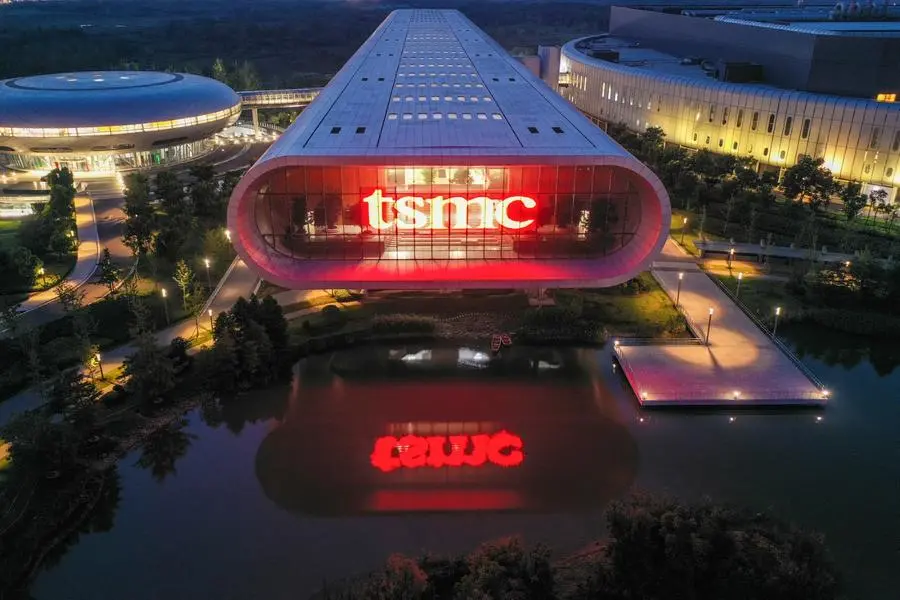PHOTO
Taiwanese chip giant TSMC is deciding whether to build a factory in Germany in a bid to avoid future supply chain worries, a senior executive said on Tuesday.
Discussions on a plant in the city of Dresden come as the firm navigates geopolitical strains over microchips, and tensions between China and Taiwan.
Taiwan Semiconductor Manufacturing Company controls more than half the world's output of silicon wafers, used in everything from smartphones to cars and missiles, with clients including Apple.
"I don't want to get into the politics side of things, but I do think there is a need for us to provide customers with a diverse supply source," TSMC executive Kevin Zhang told reporters at a conference in the Netherlands.
"We think Europe is a very significant geo(graphical area) with the customer base... I think that's really the main factor," said Zhang, the firm's senior vice president for business and development.
TSMC was "going through the due diligence process right now" on proposals for a plant in Dresden, Zhang said.
The earliest time for a decision on the German plant -- which would focus on the automotive industry -- would be at a TSMC board meeting in August, he said.
TSMC operates the world's largest silicon wafer factories. It has plants in Taiwan, China and Japan, with another under construction in the US state of Arizona.
But the Taiwanese firm's outsize role in the global chip industry is causing geopolitical jitters, especially as China increasingly threatens Taiwan, a self-ruled democracy that Beijing claims and has vowed to one day seize.
TSMC chairman Mark Liu warned in a CNN interview last August that an invasion of the island would render the firm's Taiwan factory "not operable".
The global chip shortage during the coronavirus pandemic deepened concerns, and TSMC has been lobbied by Western powers to build more foundries overseas.
But TSMC's CEO, CC Wei, said chip shortages had their flip side.
"Because of geopolitical tensions, all the people in the world started to understand the importance of semiconductors," he told the conference in a hotel near Amsterdam's Schiphol Airport.





















